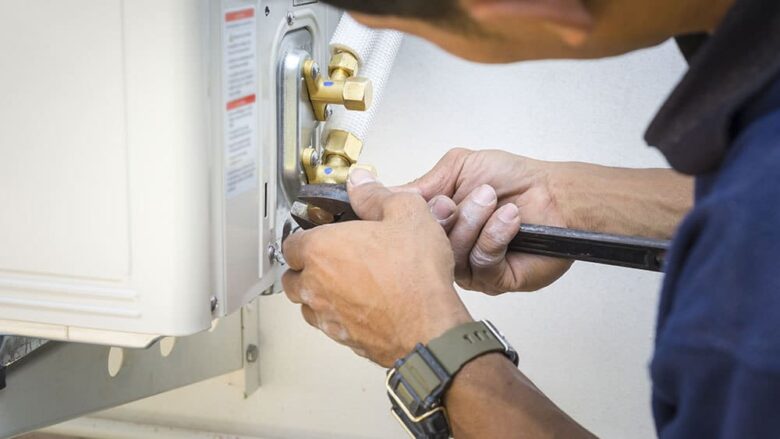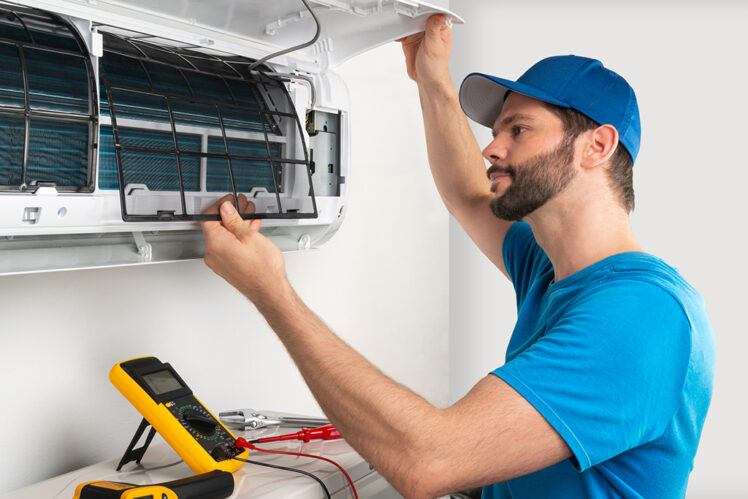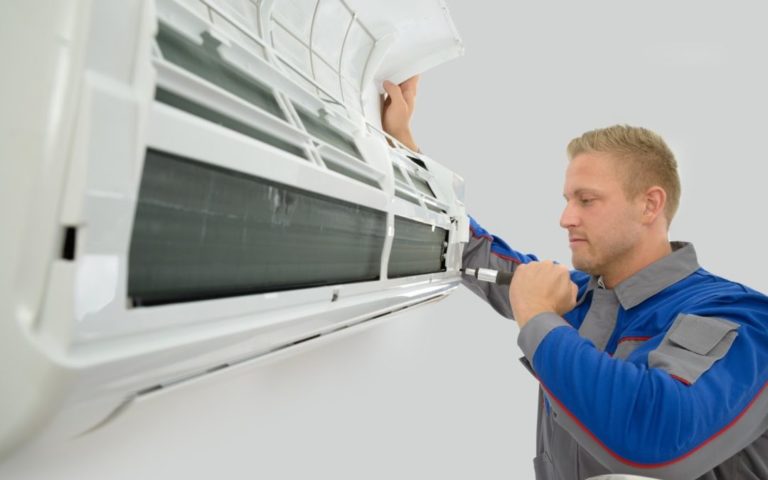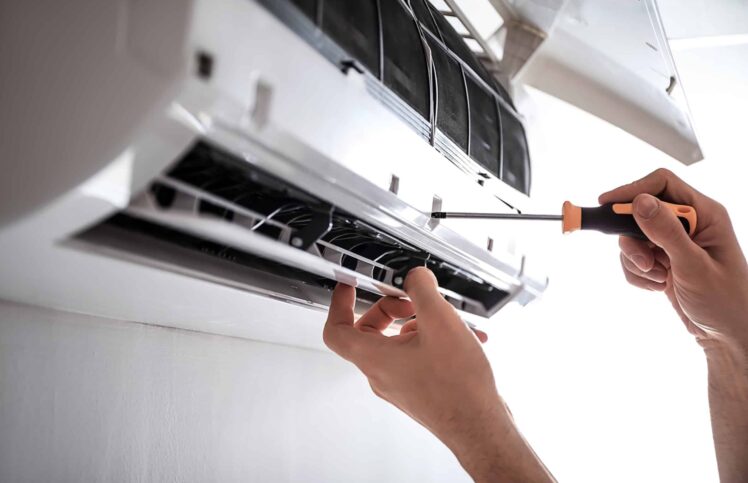HVAC stands for heating, ventilation, and air conditioning. HVAC repair and maintenance services are essential for keeping your system running smoothly and efficiently. Like any mechanical system, this systems require regular maintenance and repairs to function properly. These services can include regular inspections, cleaning, and repairs to ensure your system operates at peak performance.
Contents
- FAQs: HVAC Repair and Maintenance
- How often should I have my HVAC system serviced?
- What are some typical indications that my HVAC system needs maintenance?
- What is the difference between HVAC repair and maintenance?
- Can I perform maintenance myself?
- What are the benefits of regular maintenance?
- How can I make my system more energy-efficient?
- What should I do if my system is not heating or cooling properly?
- How long does an HVAC system typically last?
- What are some common causes of HVAC system failure?
- How can I reduce my energy bills with my HVAC system?
- What should I look for when choosing an HVAC repair company?
- What should I expect during an HVAC maintenance visit?
- Additional Tips on HVAC Repair and Maintenance:
- Conclusion
FAQs: HVAC Repair and Maintenance
How often should I have my HVAC system serviced?
You should contact professional help for your system servicing at least once a year. This can help prevent costly repairs and improve the efficiency of your system. Regular maintenance can also extend the lifespan of your system and improve indoor air quality.

Source: cielowigle.com
What are some typical indications that my HVAC system needs maintenance?
Unusual sounds, decreased airflow, fluctuating temperatures, and higher-than-average energy bills are a few typical indications that your system may require repair. Having an expert check the property if you observe any of these problems is a good idea.
What is the difference between HVAC repair and maintenance?
HVAC repair and maintenance are two distinct services that are both important for keeping your system running smoothly. It involves fixing any issues or malfunctions with your system, such as a broken compressor or a clogged air filter. This service is typically performed on an as-needed basis when a problem arises.
On the other hand, HVAC maintenance involves regular inspections and upkeep to prevent issues from arising in the first place. This can include tasks such as cleaning coils, checking refrigerant levels, and lubricating moving parts. Regular maintenance can help improve the efficiency of your system and extend its lifespan.
Can I perform maintenance myself?
While certain simple maintenance jobs, like changing air filters and cleaning exterior units, may be completed by homeowners themselves, it’s usually better to leave more complicated jobs to the experts. A qualified technician has the skills and equipment necessary to maintain your system in a secure and efficient manner.

Source: minutemanheatingandac.com
What are the benefits of regular maintenance?
Numerous advantages can result from routine HVAC maintenance, including increased effectiveness, lower energy costs, enhanced indoor air quality, and a longer system lifespan. By seeing possible problems before they develop into significant concerns, it can also assist avoid expensive repairs.
How can I make my system more energy-efficient?
To increase the effectiveness of your HVAC system, you may do several things. These include changing air filters regularly, caulking air ducts, setting up a programmed thermostat, and arranging routine maintenance with a qualified expert.
What should I do if my system is not heating or cooling properly?
If your HVAC system is not heating or cooling properly, several potential causes exist. It could be due to a clogged air filter, low refrigerant levels, or a malfunctioning thermostat. It is best to contact a professional for an inspection to determine the cause of the issue.

Source: medium.com
How long does an HVAC system typically last?
The longevity of an HVAC system can vary based on several variables, including consumption, maintenance frequency, and system type. With the right upkeep and repairs, HVAC systems may last anywhere from 10 to 15 years on average.
What are some common causes of HVAC system failure?
Some common causes of HVAC system failure include clogged air filters, low refrigerant levels, electrical issues, and mechanical wear and tear. Regular maintenance can help prevent many of these issues and extend the lifespan of your system.
How can I reduce my energy bills with my HVAC system?
You can take several steps to reduce your energy bills with your HVAC system. These include regularly changing air filters, sealing air ducts, installing a programmable thermostat, using energy-efficient equipment, and scheduling regular maintenance with a professional technician.

Source: rd.com
What should I look for when choosing an HVAC repair company?
When choosing an HVAC repair company, looking for a reputable and experienced provider is important. Consider factors such as licensing, insurance, customer reviews, and industry certifications.
What should I expect during an HVAC maintenance visit?
During an HVAC repair and maintenance in NYC visit, a professional technician will inspect your system, clean, and replace air filters, check refrigerant levels, inspect and clean coils and blower components, lubricate moving parts, and check the thermostat settings. They may also recommend any necessary repairs or upgrades to improve the efficiency and lifespan of your system.
Additional Tips on HVAC Repair and Maintenance:
In addition to scheduling regular service with a professional technician, there are several steps you can take to maintain your HVAC system and prevent costly repairs. Here are some additional tips to help you keep your system running smoothly:

Source:medium.com
Keep outdoor units clean: Make sure to regularly clean any debris or vegetation from around your outdoor units. This can help improve airflow and prevent damage to the unit.
Check for air leaks: Air leaks in your ductwork can reduce the efficiency of your system and increase your energy bills. Check for any signs of air leaks, such as drafts or inconsistent temperatures, and have them sealed by a professional.
Install a programmable thermostat: A programmable thermostat can help you save money on energy bills by automatically adjusting the temperature in your home based on your schedule. This can reduce the workload on your HVAC system and improve its efficiency.
Consider upgrading your equipment: If your HVAC system is more than 10 years old, it may be time to consider upgrading to a more energy-efficient model. Newer systems can provide improved performance and lower energy bills.
Schedule regular duct cleaning: Over time, dust and debris can accumulate in your air ducts, reducing the efficiency of your system and impacting indoor air quality. Consider scheduling regular duct cleaning with a professional technician to keep your system running smoothly.
Conclusion
Regular HVAC repair and maintenance services are essential for keeping your system running smoothly and efficiently. By scheduling regular service with a reputable company or performing basic maintenance tasks yourself, you can improve the performance of your system and save money on energy bills. By following these tips and recommendations, you can ensure that your HVAC system operates effectively and efficiently for years to come.
